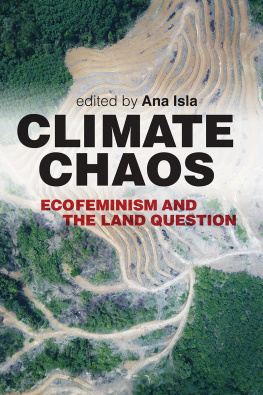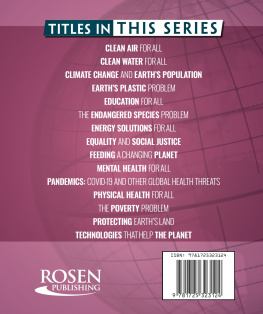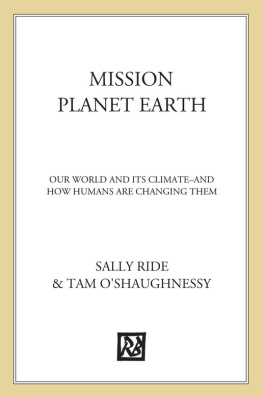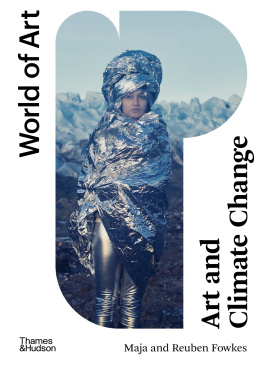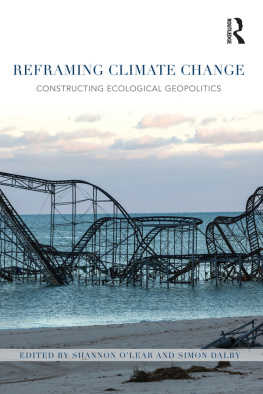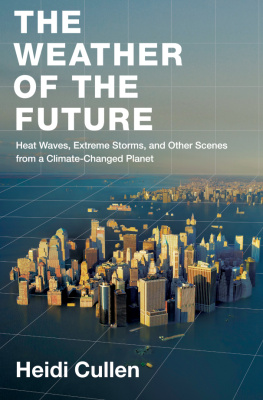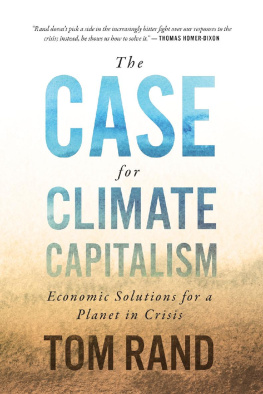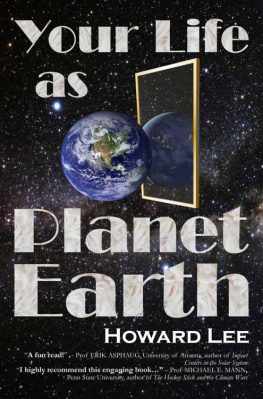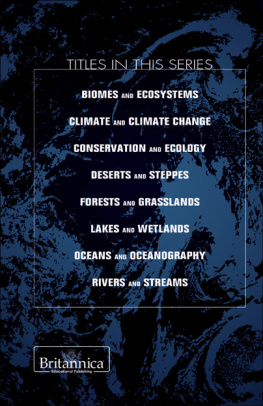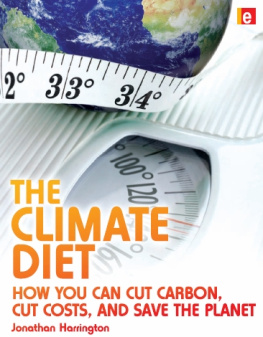Climate Chaos
Climate Chaos
Ecofeminism and the Land Question
edited by
ana isla

inanna Publications & Education Inc.
Toronto, Canada
Copyright 2019 Inanna Publications & Education Inc.
Individual copyright to their work is retained by the authors. All rights reserved. No part of this book may be reproduced or transmitted in any form or by any means, electronically or mechanically, including photocopying, recording, or any information or storage retrieval system, without prior permission in writing from the publisher.
Published in Canada by
Inanna Publications & Education Inc.
210 Founders College, York University
4700 Keele Street, Toronto, Ontario M3J 1P3
Telephone: (416) 736-5356 Fax (416) 736-5765
Email:
Note from the publisher: Care has been taken to trace the ownership of copyright material used in this book. The author and the publisher welcome any information enabling them to rectify any references or credits in subsequent editions .
Cover design: Val Fullard
eBook: tikaebooks.com
Printed and Bound in Canada.
Library and Archives Canada Cataloguing in Publication
Title: Climate chaos : ecofeminism and the land question / edited by Ana Isla.
Names: Isla, Ana, 1948 editor.
Description: Includes bibliographical references.
Identifiers: Canadiana (print) 20190064056 | Canadiana (ebook) 20190064129 | isbn 9781771335935 (softcover) | isbn 9781771335942 ( epub ) | isbn 9781771335966 ( pdf )
Subjects: lcsh : Ecofeminism. | lcsh : Climatic changes. | lcsh : Human ecology. | lcsh : Human geography.
Classification: lcc hq 1194 . c 55 2019 | ddc 304.2082dc23
To Kai, my three-year-old grandson, and his generation
Table of Contents
Acknowledgements
I would like to dedicate this book to my familyNelson, Xochitl, Felipe, Alina, and Patrick. Also to my friends at Canadian Woman Studies/les cahiers de la femme where my feminism was born and nurtured, and my associates from the journal Capitalism Nature Socialism with whom I have participated in different activities, such as publications, debates, and conferences.
I would also like to thank Brock University, where I am a Professor, cross-appointed in the Centre for Womens and Gender Studies and in the Department of Sociology. With students in my Women and Development class for the Department of Womens and Gender Studies, we debated the very nature of international economic, social, and political relations at the root of our social and ecological crises. It was in examining the concept of development that we nurtured an ecofeminism as a theory of domination and of liberation that transcends differences of class, age, ethnicity, and speciesism.
With students in my Environmental Justice class for the Department of Sociology, we discussed how the social and ecological crises came about, and how they are debated in the institutions of development and environment, as well as those originated outside academia in environmental justice organizations. Our analysis was centred on the scientific consensus that the anthropocentric burning of fossil fuels during the last 180 years is the principal source on the rise of average global temperatures and climate change. During those years, I was pleased to see that year after year, most of the students were eager to delve into the ecological crisis and its potential consequences, notwithstanding that some others were offended and attacked me in academic evaluations and online.
I would also like to thank all the contributors to this important volume: Veronika Bennholdt-Thomsen, Irene Friesen Wolfstone, Patricia E. (Ellie) Perkins, Dorothy Attakora-Gyan, Margaret Kress, Rachel ODonnell, Leigh Brownhill, Wahu Kaara, Terisa E. Turner, Jennifer Bonato, Reena Shadaan, Klaire Gain, and Ronnie Joy Leah.
Thanks are also due to Luciana Ricciutelli, Editor-in-Chief of Inanna Publications, and to Leigh Brownhill for her skillful copyedits.
In particular, I offer this book to the peasants and Indigenous women and men who allowed me to interview them and to examine their ecological resistance, while they were criminalized by governments, prosecuted by the justice system, and restrained by police.
Introduction
ana isla
T his scholarship, within the tradition of ecofeminism, is motivated by the pursuit of justice in the face of climate change, the most urgent problem challenging humanity today. To understand this issue, we need to comprehend the operation of the ecosystem, which runs on physical and chemical laws that are fixed and that we must obey. However, globally, we have ignored the laws of nature.
There are several factors that explain persistent climate change. One of them is the increased amount of extraction and energy used by industrial production in the last two centuries. This has augmented global emissions of co that have resulted in changes to the natural composition of the atmosphere of the planet.
The atmosphere and the ocean temperatures control the climate. Ninety percent of the extra heat in the atmosphere generated by greenhouse gases has significantly raised the temperature of the planets oceans, melting the glaciers of the Arctic and Antarctic. If the ice caps and glaciers disappear completely, the atmospheric temperature will rise two or more degrees and sea levels will rise by eighty meters.
These changes in the oceanic and atmospheric circulation patterns have resulted in significant global warming, which could trigger abrupt climate change ( ucc )unexpected and dramatic changes in global weather patternsthat we are largely ill-prepared to deal with or adapt to in a time span of decades or even centuries. Further, As Earth warms, melting of ice caps and glaciers, increased precipitation and other inflows of fresh water to the North Atlantic Ocean may weaken or shut down thermohaline circulation. This change in ocean circulation may shut down the flow of warm water in the North Atlantic creating ice tsunamis. As the concentration of the oceans salinity increases, the cold water sinks and the warmer water evaporates, in turn changing temperatures in countries bordering the Atlantic (e.g., colder winters and hotter summers in Europe).
This collection examines current ecofeminist debates around the ethical issues that climate change has given rise to, as well as the impact of these changing weather patterns on the lives of women and men around the globe. In the first section, chapters explore the academic field of material ecofeminism; the second section provides an overview of the Land Question; and the third section examines the way in which reigning discourses of sustainable development have not only led to a commodification of nature, but have also effaced the multiple visions, uses, and relationships to nature of local human communities. The chapters in this book explore anticapitalist, antipatriarchal, and anticolonial solutions to climate change. Ultimately, we advocate resistance to the colonization of Mother Earth and insist that Pachamama is and will again be supreme.
on ecofeminism
The discussion in this section starts by presenting the economic contradictions that generate climate change, as identified by material ecofeminism. Ecofeminists have linked the ecological and social crises in a new arrangement of capitalism and patriarchy, the productivism of global capital (Shiva; Salleh Global Alternatives, From Eco-sufficiency; Isla The Greening ). Shiva expands on Veronika Bennholdt-Thompsen and Maria Miess iceberg model for understanding the economy, and argues that climate change can be explained by the working of three economies in the same space and time: the market economy, the sustenance economy, and the natural economy. Bennholdt-Thompsen and Mies, and Shiva, sustain that each economic act is three-dimensional: economic (the market economy is the visible part of the economy), socio-cultural (the sustenance economy or social reproduction is the invisible, unpaid, or poorly paid part of the economy that sustains metabolic relations with nature), and natural (living organisms reproduced through ecological processes).

